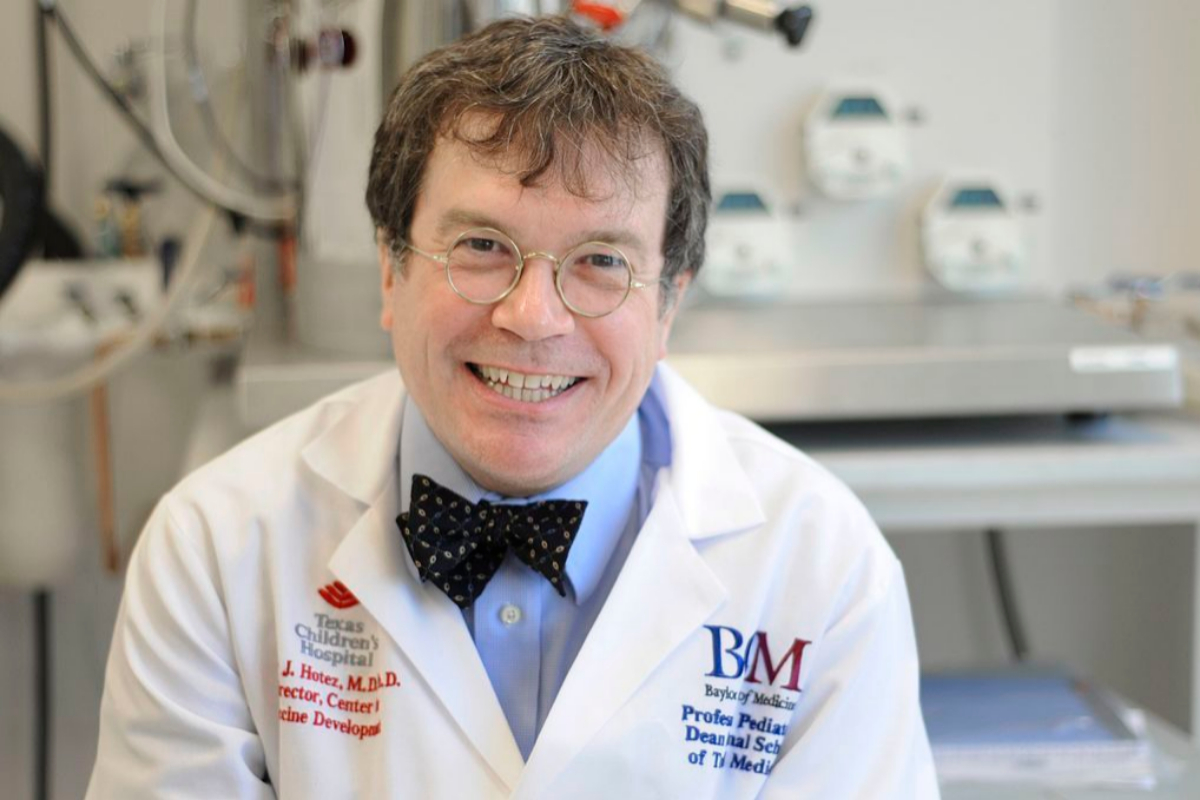- Live. Last hour of the coronavirus
- Feature: The prophecy of Covid-19: a virus tailored to the 21st century
The American scientist Peter Hotez appeared on Thursday before the US Congress to tell his story: four years ago he was about to get a vaccine that could be used to combat the new outbreak of coronavirus , known as Covid-19 , but he ran out of funds .
"We had everything ready, but we could never get an investment to finish it," said Hotez, a middle-aged man who appeared with a blue bow tie with white polka dots and glasses before the House of Representatives Committee on Science, Space and Technology .
This scientist is the co-director of the Vaccine Development Center of the Children's Hospital of Texas and dean of the School of Tropical Medicine at Baylor University , in Houston (Texas), institutions that seek vaccines that are not profitable for large US pharmacists.
A search started after SARS
Before the legislators of that little media committee, Hotez has narrated his search for a vaccine against the coronavirus , which began a decade ago, after the ravages caused by the Acute and Severe Respiratory Syndrome ( SARS , in its English acronym), which left 774 dead in China between November 2002 and July 2003.
"Ten years ago - continued Hotez - we decided to concentrate on a very interesting problem: to make vaccines against the coronavirus , because we recognized that it represents a huge challenge for public health and, despite this, we did not see that the big pharmacists were running to fill that emptiness. "
Coronaviruses are an extensive family of viruses, some of which can be the cause of various human diseases, ranging from SARS to the common cold. Years after the SARS, Hotez and his team began to develop a vaccine for that virus and for a mutation.
Good results but not very profitable
In 2016, they obtained the first satisfactory results in animal tests and began asking for funds to start a clinical trial with humans, but nobody wanted to help them and the test tubes of the possible vaccine were stored in a freezer, where they remained for years.
"The truth is that it was an unfortunate decision," Hotez recalled. "We had the vaccine ready, but we couldn't get into the clinical phase due to lack of funds. By that time, SARS was no longer a threat to health and not we get the money. No one is interested in investing in a product that is not going to be used. "
Their efforts had been forgotten until last December a virus was identified in the Chinese region of Wuhan , identified as Covid-19 .
Great similarities between coronaviruses
Since then, this coronavirus has infected more than 94,000 people worldwide and has killed more than 3,200. So far the number of patients recovered is about 51,000, according to the interactive portal of the Center for Systems Science and Engineering (CSSE) at Johns Hopkins University .
A month after the detection of the outbreak in Wuhan, Chinese scientists began to share information about this type of virus: "I immediately realized the similarities between this new coronavirus and the previous one. I realized that we could have a vaccine for the very solid coronavirus ! "exclaimed Hotez.
He then started a new crusade to try to get funds. He phoned countless pharmaceutical companies and government agencies, including the UK Medical Research Council , to ask for the three million dollars he needs to fund his trial.
"The vaccine is not going to arrive quickly"
Finally, their pleas were attended by two US agencies: the National Institutes of Health (NIH) and the Authority for the Development and Advancement of Biomedical Research (Barda), very involved in the research on the new coronavirus
"If we had these investments before to do clinical trials, we would have the vaccine ready," Hotez now reproaches. "The vaccine will not come fast, we will have to follow this very slowly, sequentially. I have heard estimates that the vaccine will be in a year or 18 months. My question is: How are they going to do that? ? No, it won't go so fast, "he lamented.
Be that as it may, it is vital for this scientist to invest in research although it may sometimes seem unprofitable. "It is urgent to create vaccines for diseases that do not give a benefit" because they serve as a basis to fight against other diseases that arise from nowhere, ditch.
According to the criteria of The Trust Project
Know more- Coronavirus
- Covid 19
- Pneumonia
- Respiratory diseases
- Infectious diseases
- Diseases
- U.S
- Science and Health

